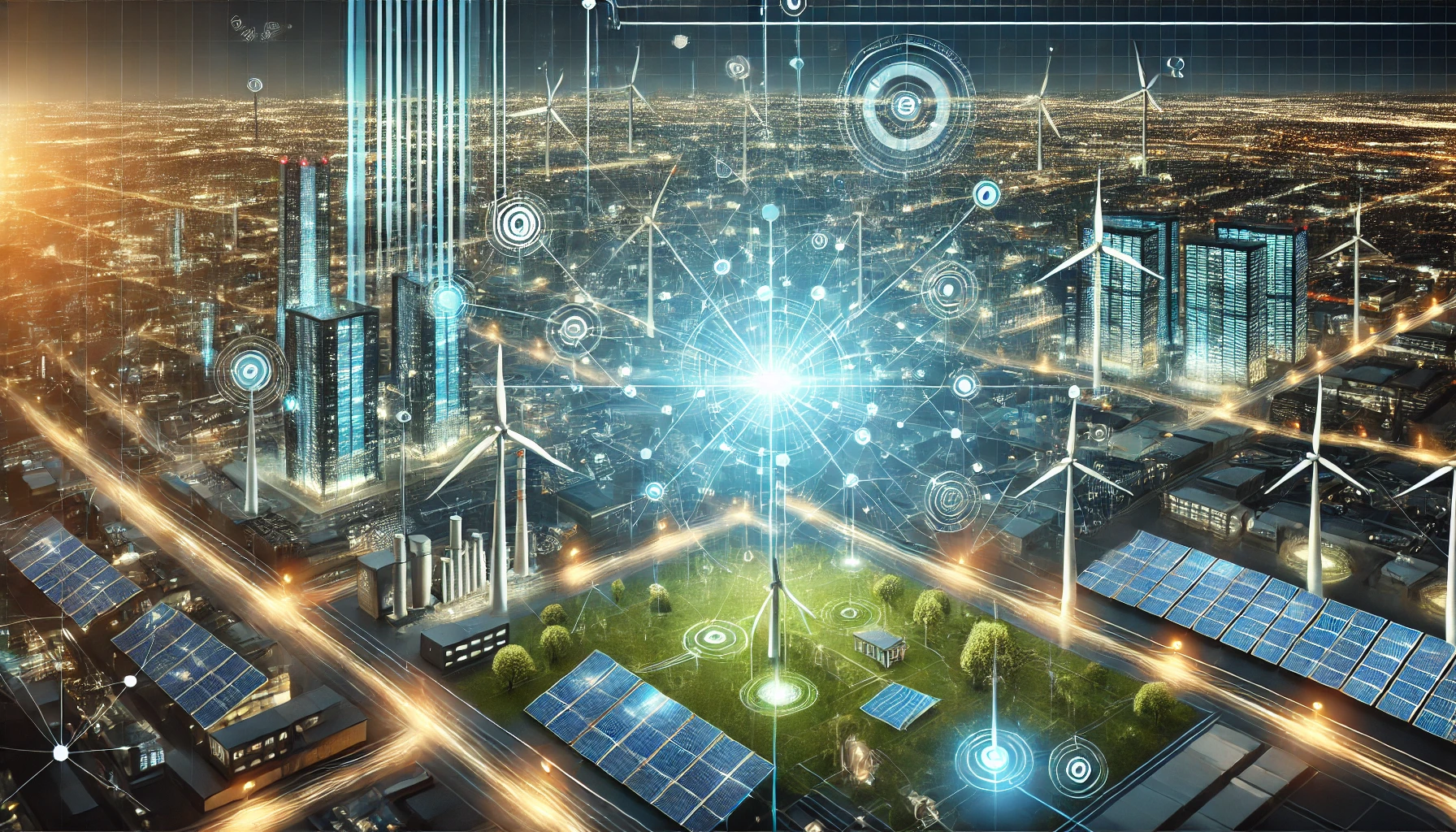What is involved in transitioning from the sorts of big, centralized power plants and adequate grid infrastructure that have been installed, expanded and developed over decades, to digitized and decentralized generation units and grids increasingly fueled by renewables? The members of Merseburg University of Applied Sciences’ recently formed Energy: Digital & Decentralized Research Group explore this very question. As an interdisciplinary collective composed of social scientists, engineers, and computer scientists we wish to invite scholars, irrespective of disciplinary background, who are interested in the topic to participate in our Autumn 2025 conference, At the Intersection.
Grids are complex technological systems that originated in the late 19th century to convey electricity. Initially the electricity fueled telegraphs for long-distance communication and bulbs whose filaments radiated light and caused the inky blackness of night to recede. However, over time the significance of grids grew explosively, serving industry, transport and households. They have become an infrastructure of paramount importance. Grids both fueled industrial growth and reconfigured social relations. However, these vast energy delivery systems have been consequential in a variety of other ways as well. Foremost among them is the impact of their fuel sources. Industrialized nation’s reliance on fossil fuels to power grids has wrought havoc on our biosphere. As temperatures continue to rise, and weather becomes less predictable various international agreements have been signed with the intention of slowing anthropogenic global warming’s deleterious effects. These accords require an eventual abandonment of fossil fuels in favor of various forms of renewable energy.
The replacement of fossil fuels with renewables represents a significant challenge to grids and operation of electric power plants. These power sources are not centralized and, furthermore, their intermittent nature means any grid they supply requires careful attention and management. Given such qualities it is clear we are talking about technological (re)development, information-technological (re)design, and ethical and societal (re)considerations. In other words, digitization of the grid and production units creates a new socio-technical regime. Yet, this shift has also a multitude of technological and computing challenges and innumerable social puzzles to resolve. It thus provides ample opportunities for interdisciplinary conversations and collaborations.
Call for participation:
We invite scholars researching the digitization of the grid and power plants from a technological, computational or social perspective, to please submit a 250-word abstract by January 31st, 2025. At the Intersection will be held in the grounds of Merseburg University between the 1st and the 3rd of September 2025. Please send your abstracts by email to energy-digital-decentral@hs-merseburg.de.
Contact
Dates
Conference: 1st-3rd September 2025
Submissions: 31st January 2025
Registration
Registration opens March 1st, 2025.
Conference Schedule
Day 1
13:00-13:20 Conference Opening
13:20-15:00 Informatics Session
15:00-15:30 Afternoon – Coffee & Mingle
15:30-17:00 Informatics Keynote
18:00 Informal Dinner
Day 2
09:00-10:30 Social Science Keynote
10:30-11:00 Morning - Coffee & Mingle
11:00-12:40 Social Science Session
12:40-13:30 Lunch
13:30-15:10 Engineering Session
15:10-15:30 Afternoon – Coffee & Mingle
15:30-17:00 Engineering Keynote
18:00 Formal Conference Dinner
Day 3
09:00-10:40 Interdisciplinary & Policymakers Session
10:40-11:00 Morning - Coffee & Mingle
11:00-12:30 Guided Discussion and Future Prospects
Keynote Speakers
Brit Ross Winthereik
Brit Ross Winthereik’s research focuses on digitalization processes, the use of data and automation in the public sector. Her ethnographic approach to contemporary welfare societies with a particular focus on information infrastructures and human life within has resulted in articles in Science and Technology Studies, anthropology and information studies journals and is presented through collaborative book projects including 'Monitoring Movements in Development Aid: Recursive Infrastructures and Partnerships' (MIT Press, 2013), ‘Electrifying Anthropology’ (Bloomsbury, 2019), 'Experimenting with Ethnography' (Duke University Press, 2021), 'Handbook for the Anthropology of Technology' (Palgrave Handbook Series, 2021), and ‘Energy Worlds in Experiment’ (Mattering Press, 2021).
Brit Ross Winthereik will deliver the Social Science Keynote on Day 2 of the conference.
Location
Merseburg University of Applied Sciences
Eberhard-Leibnitz-Straße 2
06217 Merseburg
Germany
